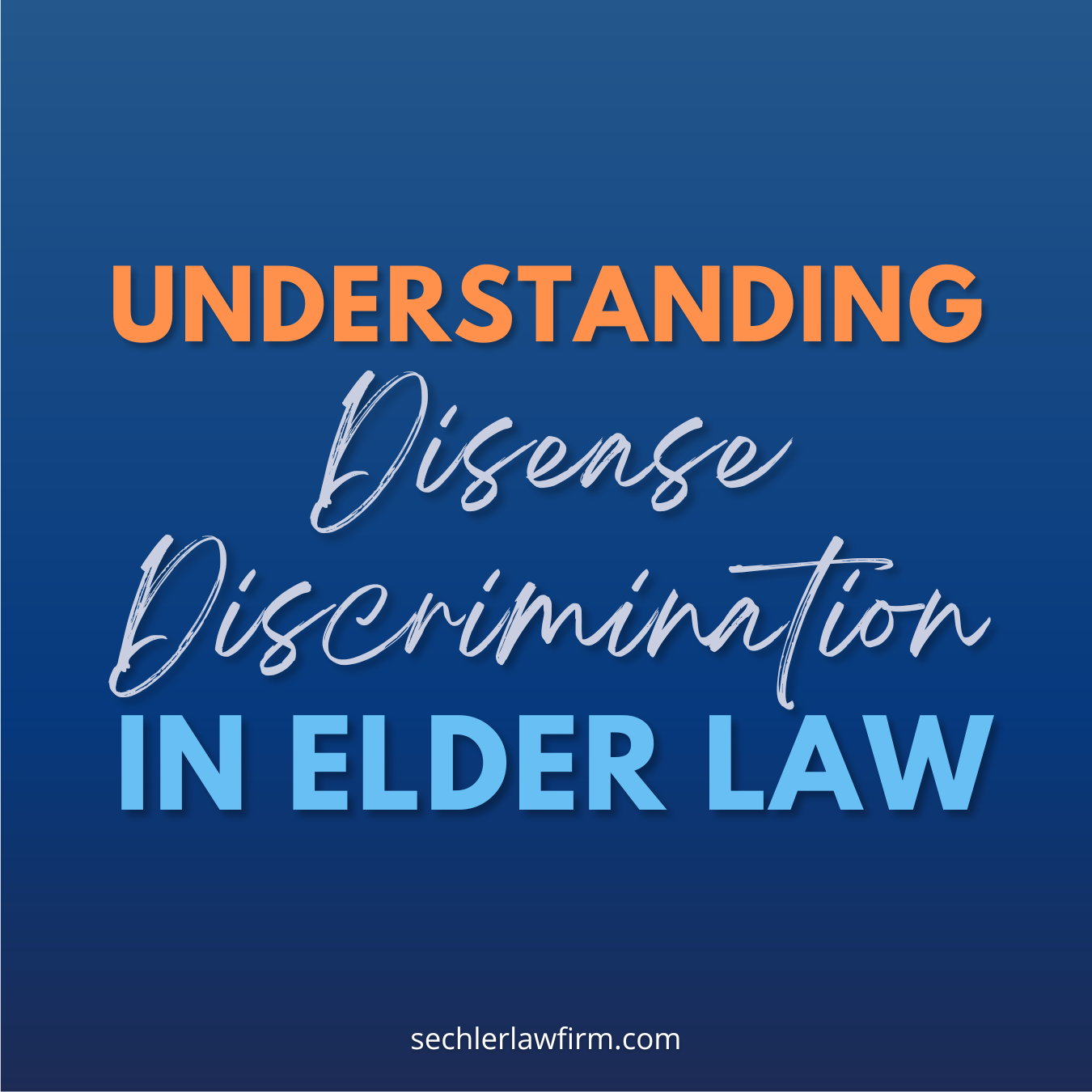As an Elder Law Attorney, I frequently encounter the harsh reality of disease discrimination. Recently, during a discussion in one of my Elder Law groups, we focused on this troubling issue. But what exactly is disease discrimination?
Simply put, it’s when the federal government treats individuals differently based on their specific health conditions—without a valid reason. This disparity unfairly impacts people with certain diseases, creating an unequal system that punishes many families financially.
The Medicare Coverage Gap
Medicare, the primary health insurance for people over 65, might seem comprehensive at first glance. You may have even recently reviewed your options for the coming year, weighing Medicare’s Parts A, B, C, D, or Medigap policies. However, the reality is that Medicare falls short in critical areas.
While it covers acute care—hospitalization, cancer treatment, surgeries, and doctor visits—it does not pay for many of the most common and expensive health needs seniors face, particularly long-term care.
Now imagine this: you’ve worked hard your entire life, raised a family, saved for a comfortable retirement, and built a legacy to pass on. Then, long-term care expenses drain everything you’ve built. Instead of enjoying your retirement or leaving an inheritance for your loved ones, your life savings disappear because of health issues that Medicare doesn’t cover.
For example, Medicare pays for cancer treatment, ensuring families don’t go bankrupt because of that diagnosis. But if someone develops dementia and requires custodial care—whether at home, in a personal care home, or at a skilled nursing facility—those costs must be paid out-of-pocket until their savings are gone.
The Hidden Costs of Dementia Care
Dementia care is a prime example of how disease discrimination works. Unlike acute care covered by Medicare, dementia care often involves custodial services—help with eating, bathing, or mobility—costs that Medicare ignores.
Families facing dementia-related expenses must pay privately, quickly depleting their assets. Once the money is gone, Medicaid steps in to cover nursing home costs, but by then, the family’s financial security has been wiped out.
You didn’t spend 50 or 60 years working hard just to go broke because of an illness. You wanted to enjoy your retirement, support your spouse, and leave something behind for your children or grandchildren—not hand it all over to healthcare expenses.
Middle-Class Families Bear the Burden
Disease discrimination and financial discrimination hit middle-class families the hardest. Wealthier individuals can afford to pay for long-term care out-of-pocket without draining their assets, and those with limited means often qualify for Medicaid right away.
But middle-class families—those with modest savings, a home, and perhaps a retirement account—face the greatest risks. Consider a family with $500,000 in savings and a home. If they must pay $150,000 per year for nursing home care, their assets will be gone in just three years. At that point, Medicaid steps in, but the damage is done. Their financial stability and legacy are gone
Protect Your Legacy: Take Action Now
Nobody deserves to lose everything they’ve worked for because of illness. That’s why proper estate planning is critical.
Estate planning isn’t just about deciding who gets your belongings when you pass away. It’s about protecting your assets, securing your future, and ensuring your family doesn’t bear the financial burden of your healthcare costs. Without planning, it’s dangerous to assume anything will remain for your loved ones.
We invite you to attend our free estate planning workshop, “The Three Secrets to Protect Your Legacy.” This workshop helps families understand how to safeguard their assets, avoid disease discrimination, and achieve peace of mind. Register today on our website: sechlerlawfirm.com/workshops.









